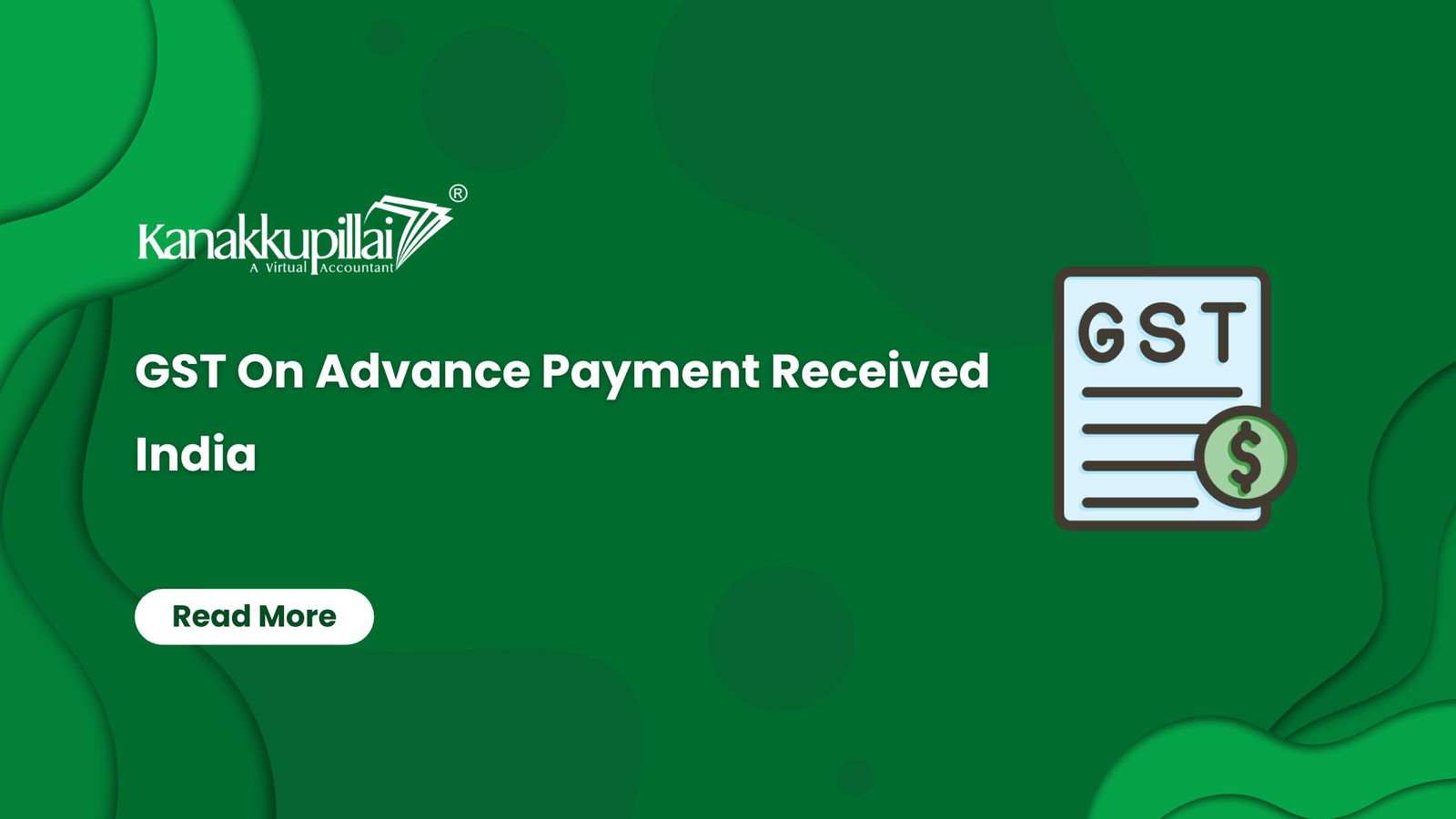Usually, GST in India is applied to a supplier for providing goods and services, and it is generally imposed when receiving payment. However, there are some cases in which an advance payment is first made by the person who receives the goods and services or both to the supplier. Input tax credit is available only if goods or services are received with an invoice document. The taxpayer can claim ITC on advance paid only on receipt of services.
This means that the advance received is considered inclusive of GST. When the rate of tax cannot be determined during receipt of the advance, GST @ 18% has to be charged. Also, if the point of sale cannot be ascertained, the advance is considered an interstate supply, and IGST has to be paid. Just go through the pertinence of GST on advance payments and why we take GST on advance payments received in India in this article.
GST & Taxation on advance payment received in India
Advance Payment is a payment that is made before its actual schedule or time, such as getting the payment for the goods or service ahead of the receipt of goods or services. Actually, sometimes the supplier who provides the goods and service calls for an advance payment, just like a security amount against non-payment, or the rendering of a service or goods or to compensate its costs for supplying a good or product. For instance, consider the rent of a party hall is Rupees 1,00,000 for a per-day dinner party. The owner of the party hall will demand to make an upfront payment of 15,000 rupees or more or less depending on the need situation or norms; this payment is just to ensure the booking status is confirmed. This upfront payment done by the receiver or the user is called an advance payment.
As mentioned, GST is a tax which has to be paid for the goods and services at the time of delivery or completion of services. But there is an exception to this rule that is the receipt of advances for Services. Hence, if a supplier asks for an advance payment before delivering the goods and services, then GST has to be paid on the advance amount even if the goods or service has not yet been supplied.
GST Advance Receipt Voucher
The formal advance receipt voucher has to contain the following details and information in order to abide by the GST rules and regulations:
- Name of the supplier of the goods or service
- Address of the supplier of the goods or/and service
- GST Identification number of the supplier of the goods or/and service
- A consecutive serial number which should not exceed sixteen characters, containing alphabets or numerals or special characters ( An advance receipt voucher must contain this serial number)
- Date of issue
- Name of the recipient
- Address of the recipient
- GST Identification Number of the recipient, if registered
- Details of the goods or services
- Amount of advance received
- The rate of tax
- Amount of tax charged on the taxable goods or services;
- Location of supply along with the name of State and its code
Reach Kanakkupillai for GST Registration Online
Phone: +91 7305 345 345 | Email: support@www.kanakkupillai.com
GST Advance Refund Voucher
If there is no supply made and no tax invoice is provided after the receipt of the advance payment, an advance refund voucher can be issued to the person who made the advance to the supplier. The following are the particulars that have to be included in the advance refund voucher:
- Name of the supplier
- Address of the supplier
- Date of issuance of the voucher
- Amount of the advance received by the supplier
- Description of goods or services
- Rate of tax and amount of tax paid as regards taxable goods or services,
- Date and Number of receipt vouchers issued
- A consecutive serial number that must not exceed more than 16 characters in one or multiple series that includes alphanumeric or special characters or a combination of both, unique for a financial year.
- Unique Identity Number of the recipient or GST Identification Number of the supplier.
- Payment of tax on a reverse charge basis
- Signature of the supplier or signature of any authorized representative
Advance Received in GST Return
The details of the amount received as the advance need to be included in Sr. No. 11A while filing the GSTR-1 return. It shows the exact amount received as taxes on corporate income in the tax period for which the invoice has not been provided.
It is called a ‘pay-as-you-earn’ scheme; advance tax is the income tax payable if your tax liability is more than Rs 10,000 in a financial year. It should be paid in the year in which the income is received. Any amount paid up to March 31 will also be accepted as advance tax for that financial year. This means that if the advance is received before the issue of the invoice, the time of supply will be the date of receipt of the advance. Thus, taxpayers receiving advance payments must pay GST on the money received.
Also, it is important to mention the return figures of the advance money received in Sr. no. 11A of the GSTR – 1, and it must be bifurcated into two parts that are advance money received against inter-state supplies and advance money received against intra-state supplies. However, the coalesced amount of the advance money obtained is to be mentioned, and there is no need to mention the complete details of each and every advance money received.
The total amount of advance money received is needed to be mentioned under the title ‘Gross Advance Received / Adjusted’ and corresponding tax liability is needed to be mentioned under ‘Central’ and ‘State/ UT’ title in intra-state supplies case and under ‘integrated’ title if it is inter-state supplies.





